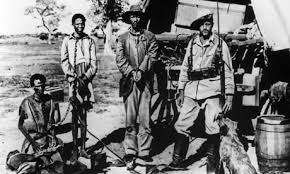EDITORIAL: A KEEN LOOK AT GENOCIDE reparation OFFERS

The move by Germany to offer an apology and monetary compensation to the African nation of Namibia for acts of genocide committed in the early 1900s has received mixed views from the public; with every side offering insights that offer deeper reflection.
Whereas some commended Berlin for this gesture to heal old wounds, others viewed it as a move that undermines the value of human lives by attaching monetary value to the acts of genocide that claimed the innocent lives of many Africans.
Indeed, Germany should feel a sense of deep remorse for what transpired over a century ago, but no amount of money is enough to fill the void that was left. History was recorded and it cannot be erased. The colonial regimes that ruled Africa with an iron fist greatly undermined the value of Africans as human beings and embarked on savagery, rampant mass killings.
The scramble for Africa by Europeans is perhaps the greatest atrocity that the world has ever witnessed with hands tied behind, eyes shut, and lips closed. Africans were treated as commodities and not respected as human beings. Slave trade reigned supreme in many African states, families were separated, leading to what is today known as the white man’s division of Africa.
This repeat gesture by Germany has evoked emotions. For example, former Member of Parliament and leader of political party ACT-Wazalendo Zitto Kabwe voiced on social media the need for the Tanzanian government through the Ministry of Foreign Affairs to also demand an apology and compensation from Germany for the killings of Tanganyikans during the Maji Maji war (1905-1907). But, what amount of money would be enough to pay the debt of lives that were lost during the war? Will monetary reparation set the record straight?
It is estimated that between 180,000 - 300,000 people lost their lives during the Maji Maji uprising that was led by Kinjekitile Ngwale in defiance of German colonialists who’d claimed supremacy over African nations. In light of such a high death toll, it is fair to say that history will not be any different and more so the lineage of the people who died trying to defend Tanzania will not be any better knowing that the government received monetary compensation for the sacrifice of their loved ones.
A proper appraoch
The Tanzanian government should indeed demand an apology from Germany and other colonial regimes that ruled Tanzania for the bad deeds that transpired. A special envoy should be assigned to initiate dialogue with the German government on the right way to heal the wounds of colonial history.
It took more than five years for Germany to own up to the killings of tens of thousands of indigenous Herero and Nama people by German occupiers in 1904-1908. After lengthy negotiations, an agreement was reached for an official apology and development aid as compensation to be issued by Germany.
Namibia has in the past rejected Germany’s reparations. Even though Tanzania hasn’t formally requested the same treatment as its African counterpart, hopes are high that the government will not be impetuous when it decides to engage Germany to make amends for historical accounts.




